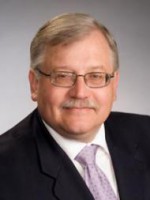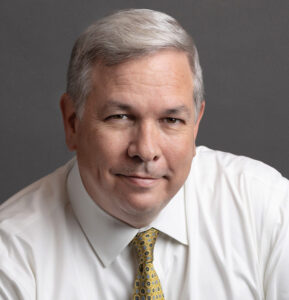 The American Society of Cytopathology (ASC) awarded WSLH Emeritus Medical Director Daniel Kurtycz, MD, the Papanicolaou Award, the highest honor awarded by the Society. It is presented annually to a physician or PhD member who has made significant contributions to the field of cytopathology.
The American Society of Cytopathology (ASC) awarded WSLH Emeritus Medical Director Daniel Kurtycz, MD, the Papanicolaou Award, the highest honor awarded by the Society. It is presented annually to a physician or PhD member who has made significant contributions to the field of cytopathology.
Kurtycz, who is also Professor Emeritus in the Department of Pathology and Laboratory Medicine at the University of Wisconsin-Madison School of Medicine and Public Health, will receive the award on November 8, 2025, during the ASC’s 73rd Annual Scientific Meeting in St. Louis, Missouri.
According to the ASC news release –
“The Papanicolaou Award recognizes a lifetime of dedication to the profession of cytology in various areas such as advocacy, organization, education, and research. Dr. Kurtycz’s extensive contributions cover all of these aspects. He has been actively involved in the ASC throughout his career, serving as a member, committee member and chair, speaker, Executive Board member, and President (2019-2020). He has delivered numerous lectures at the ASC Annual Scientific Meeting and other ASC educational events. Additionally, he has played a critical role in developing standardized terminology monographs, including The Bethesda System for Reporting Cervical Cytology, The Milan System, The Paris System, and The International System. His work has focused on ensuring the consistency of digital images by modifying color balance, sharpness, and clarity, as well as standardizing images for publication. Despite his many commitments, he has also engaged with other national and international organizations, making significant advances in the field.
“In addition to his dedication to cytopathology education, Dr. Kurtycz was a full-time faculty member at the University of Wisconsin for over 35 years, where he taught medical students, residents, and cytology students, and founded the cytopathology fellowship program.”
“I have dreamed of getting the Papanicolaou Award all my career. There are only about 70 people who have ever obtained it and I am humbled even to be mentioned next to them,” Kurtycz said. “This award is in no small part due to WSLH support. WSLH Directors Drs. Brokopp and Schauer gave me time to publish and engage in national/international activity.”
Founded in 1951, the ASC is a distinguished national professional society comprising physicians, cytologists, and scientists dedicated to the detection and early diagnosis of nearly all forms of cancer. The ASC is the largest medical society focused exclusively on recognizing cellular abnormalities for the benefit of patients.

 The American Society of Cytopathology (ASC) awarded WSLH Emeritus Medical Director Daniel Kurtycz, MD, the Papanicolaou Award, the highest honor awarded by the Society. It is presented annually to a physician or PhD member who has made significant contributions to the field of cytopathology.
The American Society of Cytopathology (ASC) awarded WSLH Emeritus Medical Director Daniel Kurtycz, MD, the Papanicolaou Award, the highest honor awarded by the Society. It is presented annually to a physician or PhD member who has made significant contributions to the field of cytopathology.